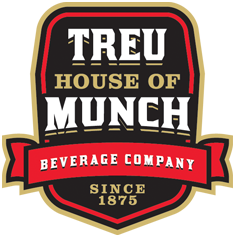Who really invented beer, anyway? No one person can claim to be the Thomas Edison or Alexander Graham Bell of beer brewing, especially since just about everyone’s favorite beverage has roots as far back as 9,000 BC. Experts have even said beer was invented before bread! But that doesn’t mean that the history of beer is any less colorful than other great inventions. The word beer originated from the Latin word “bibere” which means, “to drink,” a fact that is not widely known among Americans. But Americans certainly know beer, as malt beverages are currently consumed in about two out of every three U.S. homes. It is believed by many that the brewing of beer and knowledge of the process was not shared from one area or culture to another,
but it developed in agricultural nations independent of one another. According to archaeologist Merryn Dinely of Manchester University (England), the first beer was brewed in the Stone Age from corn that was turned into malt, the main ingredient in brewing beer. Just about everyone was a home brewer in those days, as almost all ancient villages had homes with smooth, specialized floors that are believed to have been used for malting. Other evidence of the Stone Age man’s (and woman’s) affinity for beer has been found all over, in the form of ovens and grinding stones in ancient villages that likely were used in breweries. Baskets for fermenting and storing beer have also been found, which were lined with bitumen (a type of ancient asphalt) to withstand heat. It’s even believed by some researchers that the first pottery was used as beer mugs! Beer brewing spread to Egypt over 4,000 years ago where it became a favorite daily drink, as well as an offering to the Gods placed in tombs of the dead. In fact, beer is mentioned in the Egyptian Book of the Dead, estimated to be over 6,000 years old. It was later brought to the Romans and into Britain, Germany and beyond. In some areas of northern Europe, beer as a beverage goes back further than any written history in mythology. The epic eighth century poem Beowulf, make references to mead, a beer-like alcoholic substance. Through the time of the Roman Empire, beer brewing was a part of daily life, mostly handled by housewives along with her other tasks. Larger brewing was typically done in monasteries and royal courts. In the eighth century, Germans produced the first lagered, or aged, beer. Because it is fermented at such low temperatures, it could only be brewed in the winter and stored in caves. In the ninth century, Charlemagne gave personal instructions for his court on how to brew beer. As cities continued to grow in the Middle Ages, brewing moved out of the house and into town brew-houses, which enabled people to come in and brew their own beer and pay taxes on the amount they produced. Later on, the love affair with beer continued in what would become the United States. It is reported that Christopher Columbus found a native brew made of maize that he claimed tasted like English beer. The first commercial brewery in America was founded in New Amsterdam (later New York) in 1623. While some early patriots like Samuel Adams and William Penn were involved in the early brewing industry in America, the young brewers were affected by trouble obtaining bottles during the Revolutionary War. With the help of post-war government aid, the industry was able to recover and establish itself quickly in the new country. In the 1860s, mechanical refrigeration made brewing year-round possible, which was aided even more by the first air-conditioned plant in America in 1880. “Beer is living proof that God loves us and wants us to be happy,” Benjamin Franklin has been widely quoted as saying. While the authenticity of that famous quote is disputed, with many saying it was confused with a similar one referring to wine, one thing is for sure: Beer-loving Americans from all walks of life would have a hard time disagreeing with Mr. Franklin’s quote, misattributed or not.
